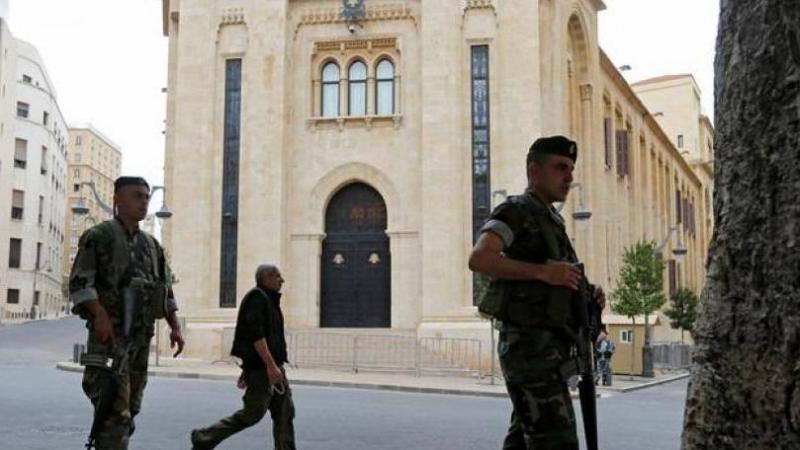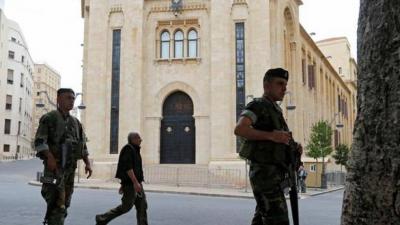Various data and indications surrounding the preparation for the presidential election suggest that Speaker Nabih Berri is hesitating to call the Parliament to convene as an electoral body for several reasons. The main reason is to allow time to finalize legislative files, particularly the budget and the capital control law, which the joint parliamentary committees will resume discussing next week. There is also a lack of consensus among political forces on defining the features of the upcoming president.
Some sources link Berri's hesitation to Article 73 of the Constitution, which states, "One month at least or two months at most before the end of the presidential term, the Council shall meet at the invitation of its President to elect the new president. If the Council is not summoned for this purpose, it shall automatically meet on the tenth day preceding the end of the presidential term." Berri also relies on Article 75 of the Constitution, which states, "The Council convened to elect the President of the Republic is considered an electoral body and not a legislative body, and is required to proceed immediately with the election of the head of state without discussion or any other action."
On the other hand, the "Change" MPs are expected to complete their political document, which they previously announced they were preparing following a retreat during which they tasked MPs Melhem Khalaf and Michel Douaihy with its drafting. According to "Nidaa Al-Watan," the document will be ready and announced at a press conference during the first week of September, coinciding with the countdown to the presidential elections.
The document will resemble an initiative to ensure the presidential elections occur on time. It will primarily focus on restoring correct political practice and the necessity of addressing the presidential election differently regarding candidates announcing their electoral programs, even though the Constitution does not stipulate this, in addition to providing an economic vision to address the crisis facing the country.
"Nidaa Al-Watan" learned that the "document" initiative will be presented to various political forces and parliamentary blocs within the Parliament, as well as to the Lebanese public, including activists, journalists, and students, to gather their opinions and take their feedback into account.
Sources from the "Change" MPs state that discussions are still in the foundational stages and have not yet delved into details. They are not under any illusions, knowing well that the President cannot implement the program because the decision of the executive authority lies with the Cabinet. MP Paula Yacoubian commented that the initiative would be discussed with all parliamentary blocs, including former MP Sleiman Frangieh, head of the Marada Movement.
MP Osama Saad believes that "what is needed is to find a new path that breaks the deadlock in the country through a comprehensive national framework that transcends the sectarian and sect-divisive alignment represented by the ruling power." He told "Nidaa Al-Watan," "Any step that could open the door to solutions and a gradual exit from the impasse is welcomed and subject to serious discussion, whether at the level of electing the President or at the level of means to rescue what remains of the country."
Independent MP Ghassan Skaf told "Nidaa Al-Watan," "Any step from fellow MPs and any team or side should start, in our opinion, from the presidency because the priority now is to elect a president and then form a responsible government that meets the specifications to implement a plan to salvage what remains of the country they have bankrupted. For us, cleaning starts from the top, and there is no value in any step, movement, or even any legislation or action before the presidential elections because that is the looming issue now. We should apply the Constitution correctly and avoid the experience of a president parachuting down to us. I don’t support any legislation or makeshift measures as happened with the banking secrecy law to give the impression that we are appeasing the IMF; they will not accept this method or what we are doing."
Moreover, "Islamic Group" MP Imad Hout mentioned in an interview with "Nidaa Al-Watan" that "what is needed is to reconstruct the system starting with electing a president because everyone is shirking responsibility, and the country is collapsing. There is a need to specify the standards and specifications for the president before entering into the name game, and any step in this direction is welcomed."
Finally, it should be noted that the balances resulting from the recent parliamentary elections within the Parliament or the "moving quorum" may make it challenging to secure the legal quorum needed for a presidential election session, requiring the attendance of two-thirds (86 MPs) without reaching a consensus or a certain settlement among the majority of parliamentary blocs. Otherwise, the country may face a scenario of presidential vacancy for the third time, following the experiences before Michel Sleiman and Michel Aoun.




